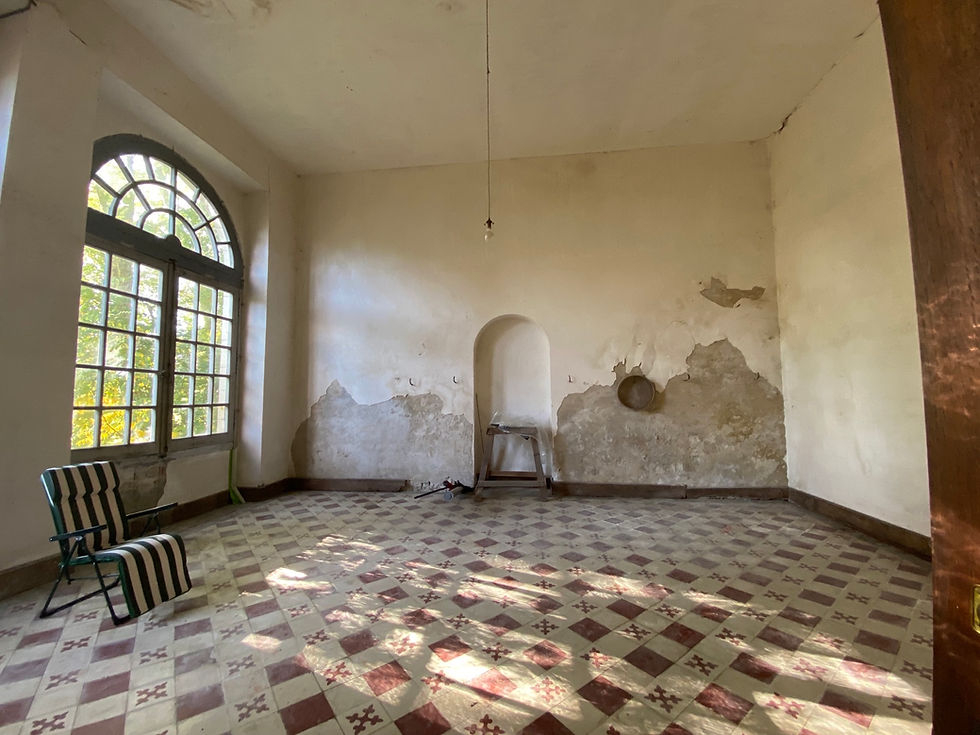Planning Permissions in France: What You Need to Know Before You Buy
- Tom Easdown
- Jun 12, 2025
- 4 min read

When buying property in France, one of the most common, and costly mistakes international buyers make is assuming that planning permission is a box to be ticked after the sale. Whether you're dreaming of converting a barn, adding a pool, or extending a stone farmhouse, what’s legally possible is rarely obvious; and rarely guaranteed.
Understanding French planning law is essential before you make an offer. This guide outlines what you need to know to avoid disappointment, delays, or significant financial loss.
Why Planning Matters Before You Buy
You find the perfect property: a charming ruin with "so much potential," a barn that would make an ideal studio, or a house that just needs “a bit of tweaking.” The estate agent assures you it’s “subject to permissions,” but those words should be a warning; not a reassurance.
In France, planning law can prevent you from using or altering a property in the way you intended. Buying without understanding what’s permitted can leave you with a beautiful, unusable building. Planning is not a formality; it’s a deal-breaker.
Key Terms: Planning Vocabulary You Need to Know
France’s planning system has its own terminology. To navigate the system, it's helpful to understand these essential terms:
Permis de construire – Full planning permission, required for major works (new builds, significant extensions).
Déclaration préalable – A simplified notification for smaller changes (roof windows, minor alterations).
Zone constructible / non-constructible – Whether building is allowed on a specific plot under the local plan.
PLU (Plan Local d’Urbanisme) – The local planning document that sets zoning rules for each commune.
ABF (Architectes des Bâtiments de France) – A heritage architect responsible for controlling alterations in protected zones (typically around churches, châteaux, or historic centres).
Understanding these terms is the first step in navigating what’s possible.
Who Controls What: Understanding the Planning Landscape
French planning is decentralised. Each commune (local authority) can have its own rules, written into a PLU.
These can differ dramatically, even between neighbouring villages or groups of communes.
Key players include:
The mairie (town hall), which receives the application and issues the decision
The Service de l’urbanisme, which
Interprets and applies the PLU
Reviews planning applications
Issues the planning certificates to the m
airies for signature
Provides advice on zoning, buildability and land use.
The intercommunalité, which may have broader strategic control over development and infrastructure where a chared PLU is created.
The ABF, who has a say in heritage zones — and can provide specific conditions on approvals or even obstruct an approval if the proposal is deemed harmful to the heritage zone. The ABF get involved in an application if a property is within a certain radius of a protected site, usually 500m.
Even if a seller or estate agent claims “it’s no problem,” decisions rest with local planning officers — and their interpretation of the rules.
Common Mistakes Buyers Make
Assuming a barn can be converted just because it looks ideal - many are zoned non-constructible and conversion may be forbidden or severely restricted.
Believing permission can be dealt with post-sale - sellers may not disclose refusals or zoning complications.
Not investigating the PLU or speaking to the mairie before purchase.
Assuming rules are the same everywhere in France - each commune has its own logic, shaped by history, politics, geography and need.
Relying on agent language - terms like “potential” or “possibility of conversion” often mean nothing unless backed by formal approvals or PLU compliance.
What You Can Know Before You Buy
You do not need to own a property to investigate its planning potential.
Here’s what can and should be done during the due diligence stage:
Request and read the planning policies for the property’s commune. These shows the zoning (urban, agricultural, protected, etc.) and the rules attached.
Visit the mairie or request information remotely. Many are helpful and open to questions, especially if approached with specific queries.
Check proximity to protected zones, waterways, forests, or heritage sites, which may trigger restrictions.
Look out for recent refusals or lapses in previous permissions - these are early red flags.
Ask if there are any current approvals in the local area that might affect the property or your future proposals.
Done properly, this investigation often saves buyers from purchasing properties they cannot legally alter, develop or that will be affected by future neighbouring development.
Case in Point: The Barn That Couldn’t Be a Home
One buyer found a beautiful stone barn outside a village in southwest France. The agent said it had “great potential,” and there were no visible problems. After some digging, the buyer discovered that the building was in a non-constructible agricultural zone. Conversion into a home was not allowed under the current policies. The buyer withdrew, grateful they hadn’t relied on assumptions.
What a Proper Planning Investigation Looks Like
An effective planning review involves:
Discovering what form of planning policy the commune uses, whetehr that be RNU (national regs), Carte Communal or PLU.
Reading and interpreting the PLU, (if there is one) in full - not just the maps, but the written regulations.
Identifying specific constraints, such as zone type, proximity to protected elements, flood risks, or aesthetic regulations.
Liaising with the mairie to ask informed questions about use, alterations, or historical refusals.
Assessing the need for ABF review, especially for properties near churches or historic buildings.
Providing clarity before commitment — so the buyer can proceed or walk away with confidence.




Comments